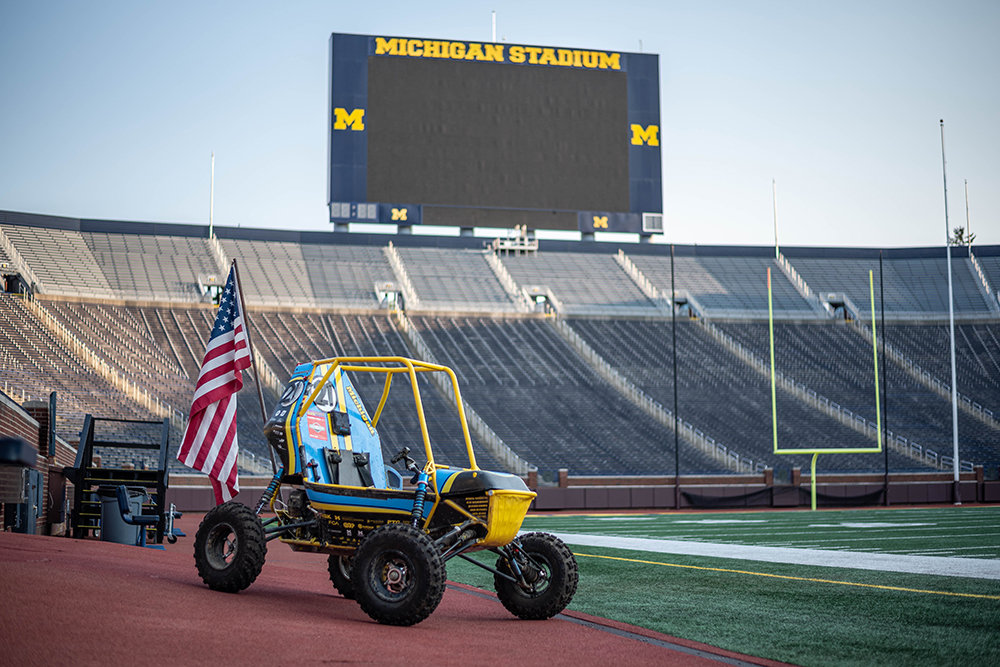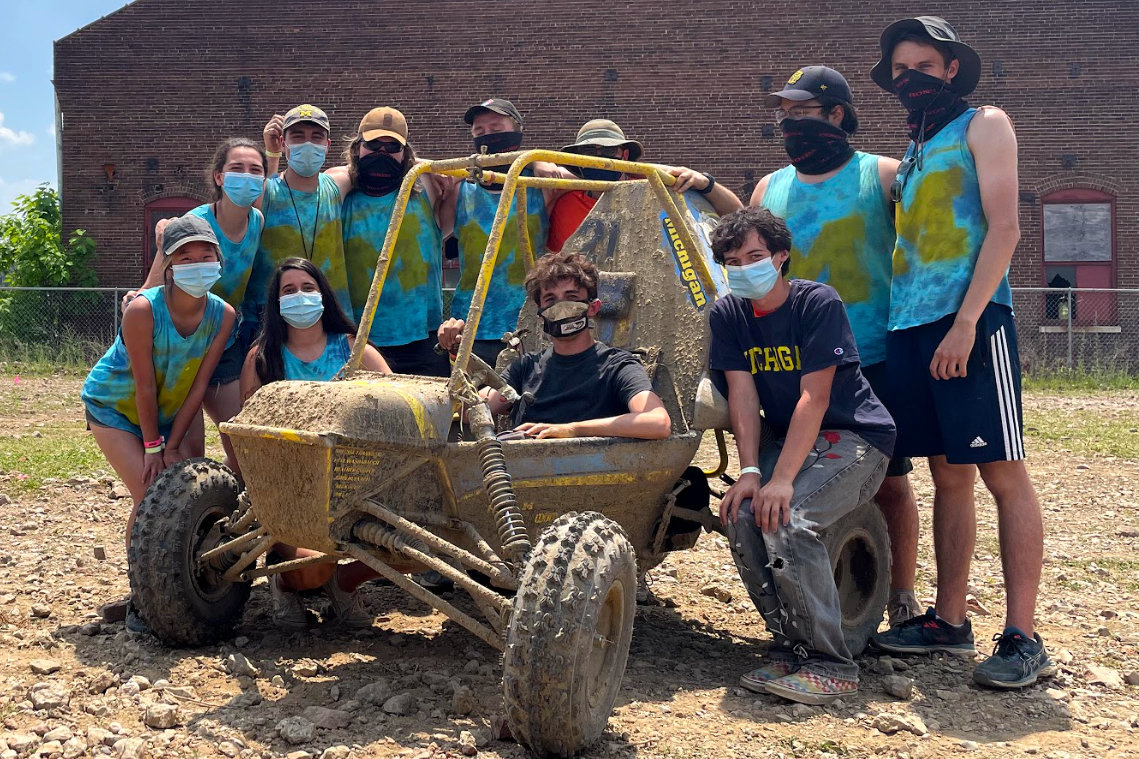
Baja Racing wins 1st Place Overall Award at SAE Louisville
In their first competition since the pandemic began, Baja proved they are still among the world’s finest, placing top ten in every event out of over 75 competitors.

In their first competition since the pandemic began, Baja proved they are still among the world’s finest, placing top ten in every event out of over 75 competitors.
Michigan’s Baja Racing team, which competes in rigorous off-road motocross races, resumed competition in fine form after a year of cancellations due to the pandemic. The team competed in one virtual competition (Baja SAE Knowledge Event) and one in person race (Baja SAE Louisville), placing top ten in every event across both competitions out of a field of more that 75 teams. Their success earned them the 1st Place Overall Award at SAE Louisville.
“It was four days of not a lot of sleep and a lot of hard work,” said Electrical Engineering junior Jake Gates, who serves as the Continuously Variable Transmission (CVT) subsystem lead on the Drivetrain team. “It was a lot of fun.”
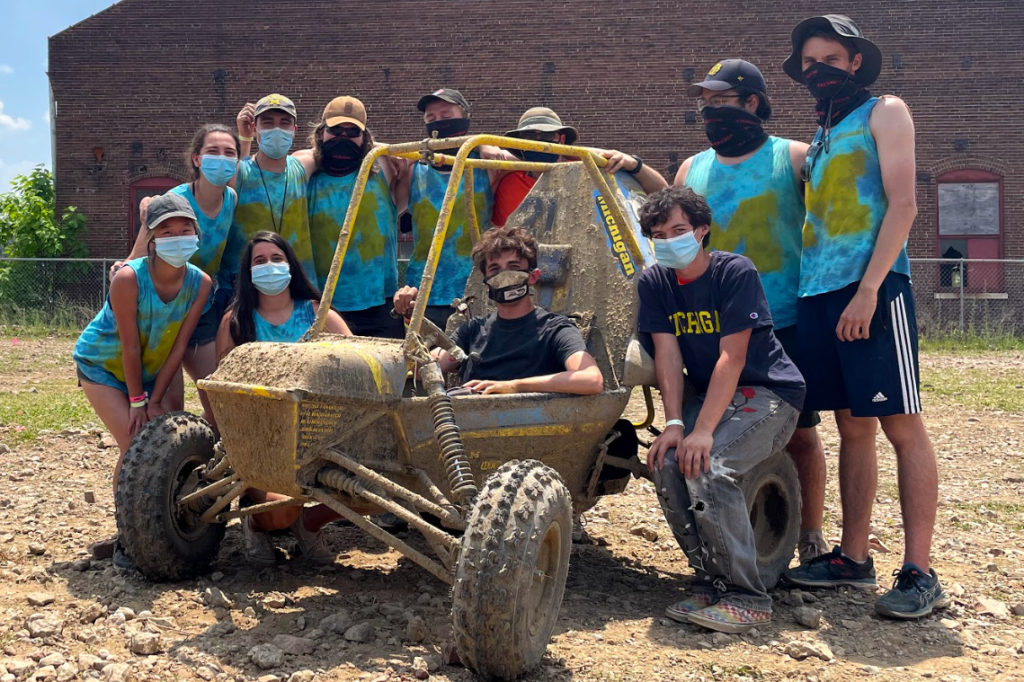
The season was spent largely at home in Zoom meetings, but as restrictions eased, the team was able to get back into the Wilson Project Center where they construct their car. However, strict distancing and capacity requirements, as well as reduced access hours, meant the team had to find creative solutions in order to meet deadlines.
“Every year, we build a whole new frame for the car, but this past year we weren’t able to do that, because we didn’t have the time,” said Electrical Engineering junior Bill Wolf, who also works on the CVT on the Drivetrain team. “We ended up having to repurpose our old frame. That was one of the biggest challenges, because we also had to incorporate four-wheel drive, but the frame was originally built for two-wheel drive.”
Competition brought its own set of challenges, such as when the brake light fell off during the Endurance event and Gates had to solder a new one into place on the spot. During the Maneuverability event, one of the hubs broke as the car finished a drop-off, which also sheared the front suspension mounting tabs. According to the competition report, “A colossal effort by the team brought the car back into working order in less than two hours, including welding new tabs on the frame and swapping the hubs.” Despite the crash, the team placed second in the event, which was their best individual dynamic result.
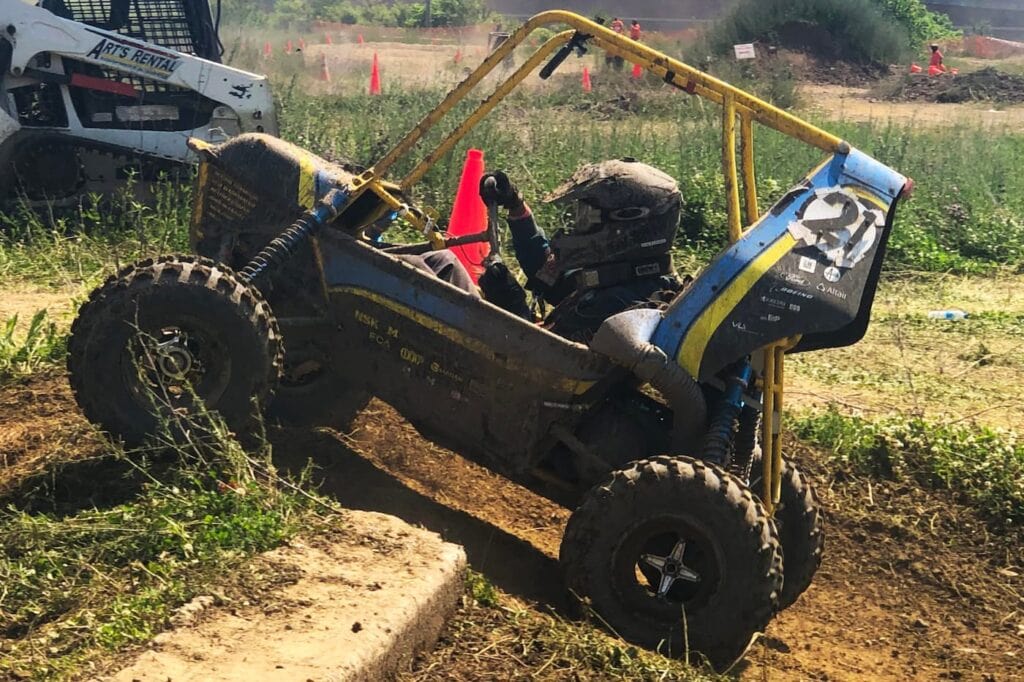
In addition, the team’s four-wheel drive implementations were a triumph. They were the fastest four-wheel drive car and the third fastest car overall at SAE Louisville. This year, incorporating four-wheel drive was optional to earn extra points, but in the future, it will be required for all competing vehicles.
“That was a major reason we won,” Wolf said. “We not only did really well, we also got the bonus points for having four-wheel drive. It was cool to see that all the changes we made actually worked and produced a successful vehicle.”
Like many other teams, one of the biggest challenges for this year was keeping the team connected.
“In a weird way, I feel like the pandemic brought us closer as a team,” Gates said. “My teammates on Baja were the only people I was seeing on a day to day basis, because it’s not like you’re going out. You really got to know everyone, and it brought us together a lot more.”
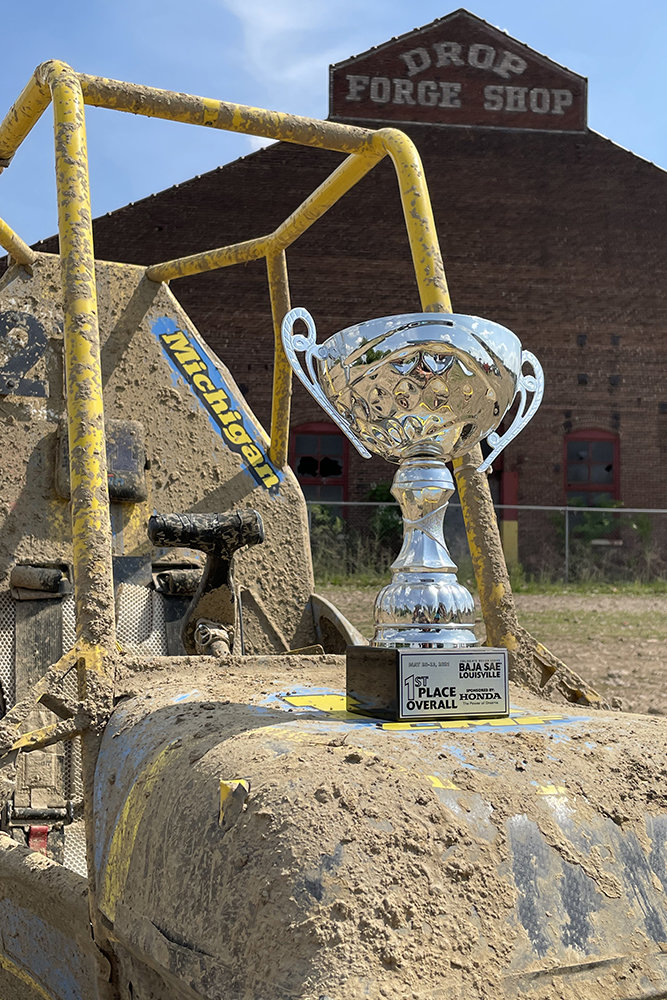
While in person activities were limited for the team, they were able to attend a practice competition in upstate New York this fall to train the younger members of the team.
“That was awesome, because we got a lot of experience out of it, and we got to bond with the younger members of the team,” Wolf said. “It was a good time.”
Both Gates and Wolf joined the team as freshman, and said that one of their favorite aspects of Baja is that they were able to be hands on right from the start. The work is very interdisciplinary, and requires a lot of collaboration with engineers from a variety of expertise and backgrounds.
“You don’t have to be the smartest person designing the car,” Wolf said. “You can work together with someone who has more experience, and that’s really fun. It’s definitely cool to apply your classroom knowledge to something in real life, like building a car.”
“It’s a lot more difficult than simply applying what I learned in class,” Gates said. “I also have to understand how it connects with this fully mechanical system, which is really challenging and really fun.”
In addition, the off-road nature of the competitions makes for particularly interesting design challenges. “The selling point for me was watching a demonstration where the Baja car scaled the steps next to the BBB,” Gates said. “Seeing that was like, whoa, a student team can actually design something like that.”
